Trees
All Trees Content
Sioux Falls to Host Emerald Ash Borer Tree Injection Workshop
April 21, 2021
As the season for emerald ash borer treatments nears in South Dakota, state forestry experts want applicators in the Sioux Falls area to be prepared.
Tree Watering Tips for Drought Conditions
There is no precise recipe for how much and how often trees should be watered during a drought. However, there are a few guidelines to follow.
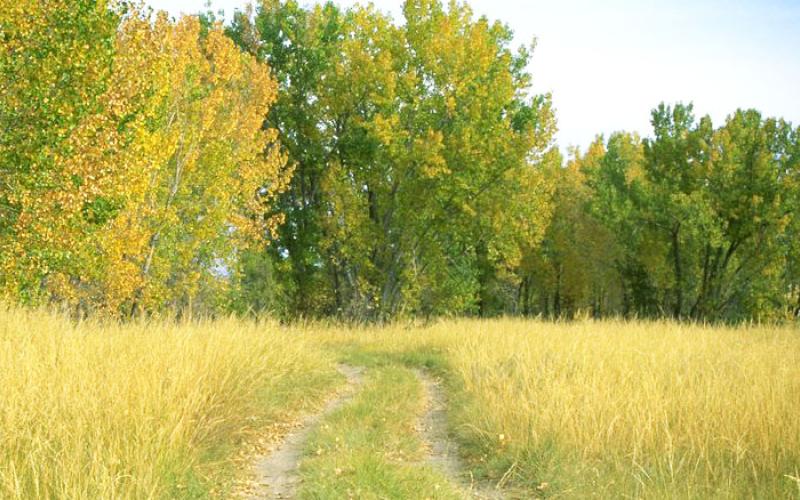
Trees & Drought Stress
Trees require a lot of water to meet their functional needs and long-term shortages can influence their growth and survival.
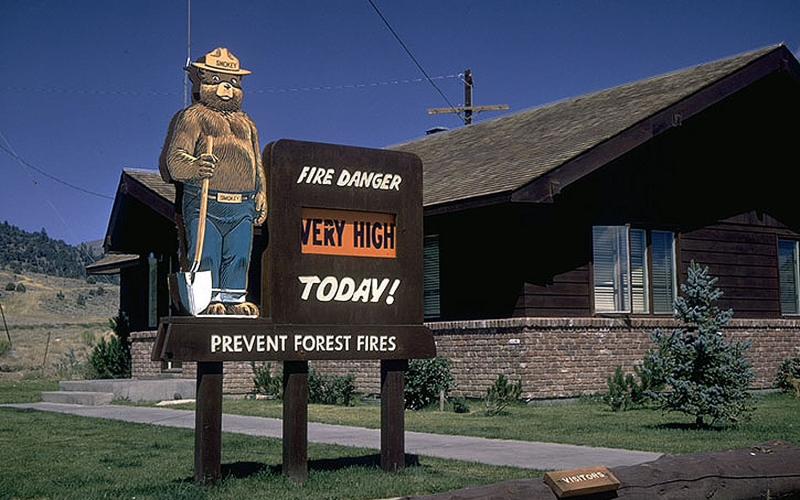
Campfire Safety in Drought Conditions
During fire season, open fires may be prohibited or otherwise restricted by the regulatory agency in charge of the campground or facility that you are visiting.
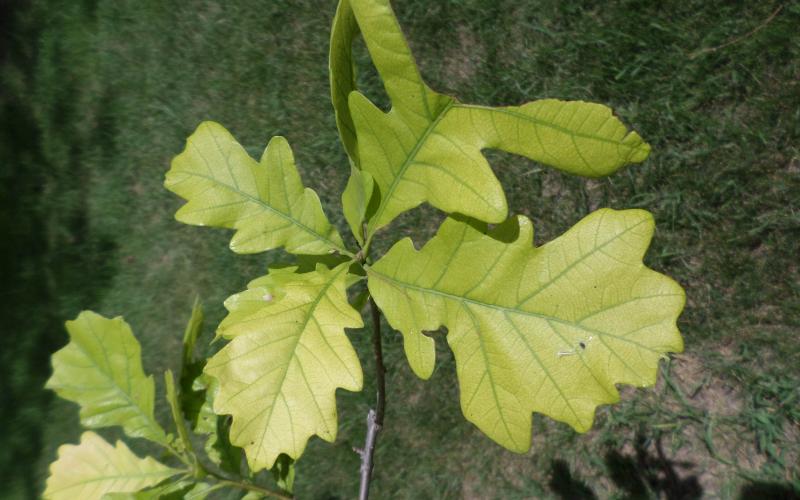
Why Are The Tree Leaves Turning Yellow?
Chlorosis, a condition where the leaf veins remain green but the surrounding foliage turns pale green or yellow, is a common occurrence on certain tree species in South Dakota.
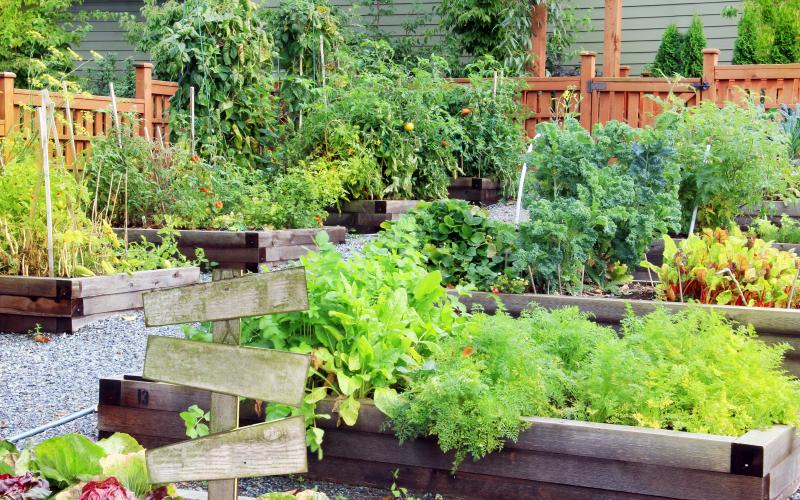
Fire Blight
Fire blight is a disease that can infect apples, pears, and certain ornamental species including crabapples, cotoneaster, and mountain ash. Occasionally it may also appear on cherries, plums, Juneberry (also called Serviceberry or Saskatoon), and raspberry. This disease, caused by the bacteria Erwinia amylovora, can damage blossoms, fruit, leaves, shoots, and branches. If it is not controlled, fire blight may kill the entire tree or shrub. Infected tissue cannot be cured, but will need to be removed from the tree to prevent further spread.
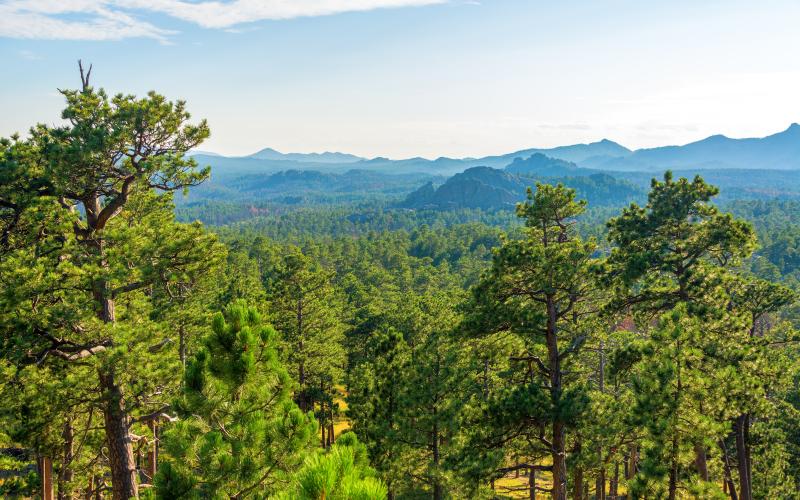
Junior Arborist Activity Guide
The Junior Arborist Activity Guide provides objectives, content, equipment and supplies needed to complete 8 modules of arboriculture instruction, helping schools and other educational programs to create a youth arboriculture program of their own.
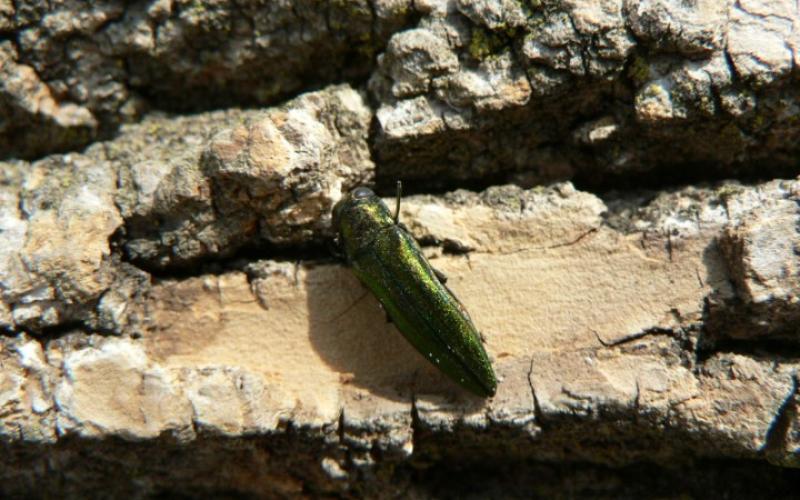
Emerald Ash Borer Insecticide Treatment Options
Fact sheet about insecticide treatment options for protecting ash trees against emerald ash borer.

How to Identify an Ash Tree Infested by Emerald Ash Borer
This guide will help you determine whether an ash tree may be infested by the emerald ash borer.
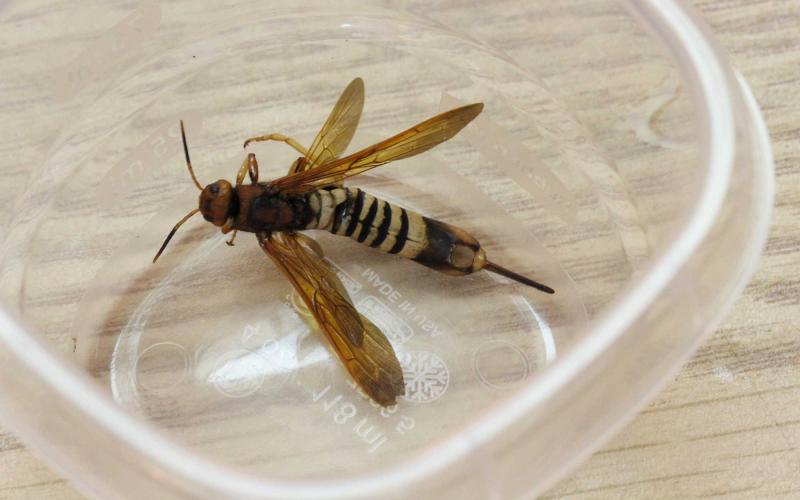
Huge Wasps on My Tree! No, Those Still Aren’t Murder Hornets.
Another insect that has been mistaken for the Asian giant hornet (also known by its media-popularized name of ‘murder hornet’) is the horntail wasp. Horntail wasps are wood-boring insects that are harmless to humans, as they do not have venom and cannot sting.